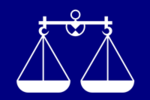Barisan Nasional | |
|---|---|
 | |
| English name | National Front |
| Chinese name | 国民阵线 Guómín zhènxiàn |
| Tamil name | தேசிய முன்னனி Tēciya muṉṉaṉi |
| Abbreviation | BN |
| Chairman | Ahmad Zahid Hamidi |
| Secretary-General | Zambry Abdul Kadir |
| Deputy Chairman | Mohamad Hasan |
| Vice Chairman | |
| Advisor | Najib Razak |
| Treasurer-General | Johari Abdul Ghani |
| Founder | Abdul Razak Hussein |
| Founded | 1 June 1974[1] |
| Legalised | 1 June 1974 |
| Preceded by | Alliance |
| Succeeded by | Gabungan Parti Sarawak (in Sarawak) (2018) Gabungan Rakyat Sabah (in Sabah) (2022)[2] |
| Headquarters | Aras 8, Menara Dato’ Onn, Putra World Trade Centre, Kuala Lumpur |
| Newspaper | |
| Student wing | Barisan Nasional Student Movement |
| Youth wing | Barisan Nasional Youth Movement |
| Women's wing | Barisan Nasional Women Movement |
| Ideology | |
| Political position | Centre-right to right-wing |
| National affiliation | Perikatan Nasional (2020–2022)[nb 1] National Unity Government (since 2022) |
| Regional affiliation | Gabungan Rakyat Sabah (since 2020) |
| Colours | |
| Slogan | Rakyat Didahulukan (People's First, Nation First) Hidup Rakyat (Long Live the People!) Bersama Barisan Nasional (With the National Front) Hidup Negaraku (Long Live the Nation!) Kestabilan dan Kemakmuran (Stability and Prosperity) |
| Anthem | Barisan Nasional[6] |
| Dewan Negara | 15 / 70 |
| Dewan Rakyat | 30 / 222 |
| State Legislative Assemblies | 123 / 611 |
| Chief minister of states | 4 / 13 |
| Election symbol | |
 | |
| Website | |
| www | |
| This article is part of a series on the |
| Politics of Malaysia |
|---|
 |
The National Front, officially Barisan Nasional (BN), is a political coalition of Malaysia that was founded in 1974 as a coalition of centre-right and right-wing political parties to succeed the Alliance Party. It is the third largest political coalition with 30 seats in the Dewan Rakyat after Pakatan Harapan (PH) with 82 seats and Perikatan Nasional (PN) with 74 seats.
The coalition consists of the United Malays National Organisation (UMNO), Malaysian Chinese Association (MCA), Malaysian Indian Congress (MIC), and United Sabah People's Party (PBRS).
The Barisan Nasional coalition employs the same inter-communal governing model of its predecessor the Alliance Party but on a wider scale, with up to 14 communal political parties involved in the coalition at one point.[1] It dominated Malaysian politics for over thirty years after it was founded; however, since 2008, the party has faced stronger challenges from opposition parties, notably the Pakatan Rakyat and later the Pakatan Harapan (PH) alliances. Taken together with its predecessor Alliance, it had a combined period of rule of almost 61 years from 1957 to 2018, and was considered the longest ruling coalition party in the democratic world.[7]
The Barisan Nasional coalition lost its hold of the parliament to PH for the first time in Malaysian history after the 2018 general election. It was also the first time Barisan Nasional became the opposition coalition, with former prime minister and Barisan Nasional chairman Mahathir Mohamad becoming PH's leader. As a result, the Sabah and Sarawak BN component parties left the coalition and formed their own coalitions in 2018 and 2022. In the aftermath of the 2020 Malaysian political crisis, together with four other parties, the Barisan Nasional coalition returned to power under a Perikatan Nasional-led government. However, it suffered its worst result in the 2022 election, falling to third behind Pakatan Harapan and Perikatan Nasional, but it stayed in government by supporting Pakatan Harapan.
- ^ a b Joseph Liow; Michael Leifer (20 November 2014). Dictionary of the Modern Politics of Southeast Asia. Routledge. pp. 102–. ISBN 978-1-317-62233-8.
- ^ "Hajiji says BN not part of newly-registered Gabungan Rakyat Sabah". Malay Mail. 18 March 2022. Retrieved 20 March 2022.
- ^ Timothy J. Lomperis, September 1996, 'From People's War to People's Rule: Insurgency, Intervention, and the Lessons of Vietnam', page 212, ISBN 0807822736
- ^ Helen Ting. "The Politics of National Identity in West Malaysia: Continued Mutation or Critical Transition? [The Politics of Ambiguity]" (PDF). Southeast Asian Studies, Kyoto University. J-Stage. p. 3/21 [33] and 5/21 [35].
UMNO came into being in 1946 under the impetus of the Anti-Malayan Union Movement based on this ideological understanding of ketuanan Melayu. Its founding president, Dato' Onn Jaafar, once said that the UMNO movement did not adhere to any ideology other than Melayuisme, defined by scholar Ariffin Omar as "the belief that the interests of the bangsa Melayu must be upheld over all else". Malay political dominance is a fundamental reality of Malaysian politics, notwithstanding the fact that the governing coalition since independence, the Alliance [subsequently expanded to form the Barisan Nasional or literally, the "National Front"], is multiethnic in its composition.
- ^ Jinna Tay; Graeme Turner (24 July 2015). Television Histories in Asia: Issues and Contexts. Routledge. pp. 127–. ISBN 978-1-135-00807-9.
- ^ Barisan Nasional
- ^ Anuradha Raghu; Niluksi Koswanage (5 May 2013). "Malaysians vote to decide fate of world's longest-ruling coalition". Toronto Sun. Retrieved 5 May 2013.
Cite error: There are <ref group=nb> tags on this page, but the references will not show without a {{reflist|group=nb}} template (see the help page).